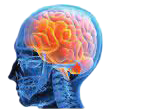Supporting Your Aging Parent Through Normal Cognitive Changes
As a neuropsychologist who works with families navigating age-related cognitive changes, I often see the mixture of concern, confusion, and sometimes frustration that adult children experience when their parent’s thinking patterns begin to shift. That moment when your once-sharp parent asks the same question several times, or struggles with tasks they've done effortlessly for decades, can feel unsettling and even frightening.
What I want you to understand is that many cognitive changes are a normal part of healthy aging, not necessarily signs of dementia or disease. By recognizing these natural shifts and adapting your approach accordingly, you can maintain meaningful connections and reduce stress for both you and your parent.
The Gift of Long-Term Memories
One of the most beautiful aspects of cognitive aging is the preservation of long-term memories. While your parent might forget what they had for breakfast, they often retain vivid recollections of experiences from decades ago. I encourage families to embrace this pattern rather than fight against it. Consider:
Inviting conversations about their early years, first jobs, or how they met their spouse
Looking through photo albums together, which can spark rich storytelling
Recording their life stories—these memories are precious family treasures
These conversations not only honor your parent's cognitive strengths but also create moments of connection when they feel confident and engaged rather than confused or forgetful.
Simplifying New Information With Compassion
The most challenging aspect of cognitive aging involves forming and retrieving new memories. You might notice your parent remembers the essence of a conversation but misses specific details. This happens because:
The brain's ability to encode new information gradually becomes less efficient
Working memory capacity (the mental notepad we use to hold new information) naturally decreases
Information processing requires more mental effort and attention
Rather than repeatedly correcting or testing your parent, try these supportive approaches:
Offer information in small, digestible pieces rather than long explanations
Create simple written reminders for important details (appointments, medication changes)
Use consistent organizational systems—a dedicated calendar or message board in the same location
Reinforce key information with gentle repetition, presented as helpful reminders rather than corrections
Remember that your parent isn't being difficult or inattentive—their brain simply works differently now than it once did.
Honoring Their Need for Processing Time
One of the most significant yet least understood aspects of cognitive aging is slowed processing speed. This doesn't affect intelligence, wisdom, or depth of thinking—just the pace at which information is processed. You might notice:
Hesitations before responding to questions
Taking longer to follow multi-step instructions
Needing more time to adjust to new situations or environments
I often remind families that rushing an aging parent can actually make their cognitive performance worse by adding stress to an already demanding mental task. Instead:
Allow extra time for them to process questions before expecting a response
Resist the urge to finish their sentences or thoughts
Schedule additional time for activities that once took less time
Acknowledge that their thoughtfulness is still valuable, even if it comes at a different pace
This patience honors their dignity while reducing the frustration that comes from feeling constantly hurried.
Embracing the Power of Focus
Multitasking becomes increasingly challenging as we age. Your parent may have once effortlessly prepared dinner while helping with homework and answering phone calls, but now struggles when multiple demands compete for attention.
You can support your parent by:
Minimizing interruptions during important conversations or tasks
Breaking complex activities into separate, manageable steps
Allowing completion of one task before introducing another
These adjustments help your parent succeed at individual tasks rather than feeling overwhelmed by competing demands.
Create a Calm Setting
As our brains age, they become more sensitive to sensory stimulation. What might seem like a normal noise level to you might feel overwhelming to your aging parent. This increased sensitivity affects:
Ability to follow conversations in noisy environments
Mental clarity in busy or chaotic settings
Energy levels after exposure to prolonged stimulation
You can help create cognitive-friendly environments by:
Turning down background noise (TV, radio) during conversations
Choosing quieter restaurants or less busy times for outings
Planning rest periods between stimulating activities
Being mindful that even positive stimulation (like visiting grandchildren) can be cognitively taxing
These adjustments aren't about limiting experiences but rather creating conditions where your parent can fully engage without becoming overwhelmed.
Work With Their Strengths
Just as young children have optimal times for learning and engagement, aging adults experience predictable patterns of cognitive clarity and fatigue. You may notice:
Morning mental sharpness for some, afternoon clarity for others
Increased cognitive fatigue as the day progresses
"Sundowning" or confusion that worsens in late afternoon/evening
Recognize the patterns and make accommodations:
Schedule important conversations or decisions during their best cognitive hours
Plan shorter, more frequent visits rather than marathon sessions
Recognize when fatigue is affecting cognition and suggest breaks or rest
Adjust expectations based on the time of day
This approach works with your parent’s natural rhythms rather than against them, allowing you to experience them at their cognitive best.
About the Author: Dr. Susan Borgaro is a Clinical Neuropsychologist specializing in memory assessment and cognitive enhancement strategies. With over 25 years of experience working with patients across the lifespan, Dr. Borgaro brings both clinical expertise and practical insights to help people optimize their cognitive functioning. www.nasarizona.com

